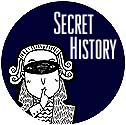
Comment
on this story |
 |

The end of the Imperial era
by Jack Neely
That March, all the great nations of Europe were at war. For almost two years they'd been hammering at each other with big guns, lobbing poison gas into each other's trenches. That spring, hundreds of thousands were dying in the trenches near a French city called Verdun. It was said to be the worst fighting in the history of the world. America wouldn't have anything to do with it.
Moved by the plight of the French, academics were using a new word to describe Americans: Slackers. Several warring nations were frustrated that the United States was doggedly peaceful. The French evoked the memory of Lafayette, whose French forces had helped American patriots win the Revolutionary War. But our army was busy in 1916, chasing one charismatic terrorist named Pancho Villa back and forth across the Mexican border. Reports of his imminent capture came in almost daily. The chase of Villa generally got more newspaper coverage than the European war.
Even after American civilians, hundreds of them, had died in torpedoed commercial ships in the Atlantic, America cheered a president running for re-election on the platform, "He kept us out of the war." We had better things to do than help out those belligerent Europeans. We had lives to live, Hupmobiles to drive, tennis games to play, Chaplin movies to watch.
There were several movie theaters downtown: the Queen, the Gay, the Majestic. The Rex was showing Drugged Waters and the comedy, Scars and Stripes. At the Bijou was a musical called The Whirl Of Life, starring Vernon and Irene Castle, the faddish young dancers. To accompany the nationally trendy movie, musicians performed a score written by a 28-year-old New Yorker named Irving Berlin.
The Grand offered a live show by the South American Marimbo Band, featuring "Five Native Brazilians." The comic team of Eldon and Clifton were in a Protean Comedy Surprise called His Awful Nightmare.
The shows let out into windy streets and the smell of rain. Some returned to rooms at the Hotel Imperial at Gay and Clinch. It wasn't unusual for the 194 rooms in Knoxville's swankiest hotel to be packed, as they were that night. Long famous for its exotic holiday dinners, it housed a variety of amenities: the Imperial News & Cigar Store, the Imperial Barber Shop, the Imperial Billiard Hall. Its comfortable, wood-paneled lobby was furnished with rocking chairs and embellished with Lloyd Branson's famous oil of the Revolutionary War Battle of King's Mountain.
By 1916, it was beginning to look a little bit out of date. Its elaborate Victorian bays looked—well, imperial. A couple of years earlier, there'd been a plan to build a bigger, more modern hotel here to replace it. Frustrated by a bank failure, the owners opted to give the Imperial a thorough renovation instead. The old place still had appeal.
That night, people from all over the eastern United States sought shelter from the unpredicted storm: the Imperial's guests were from Cincinnati, Boston, Chicago, St. Louis, Baltimore, Louisville, New York. Around midnight, many of them heard the loud crack of thunder overhead. Three young men were sitting and chatting in the hotel's top floor. Emert Atkin, R.F. Mackeimer, and a Dr. Clotworthy stepped out of their room and noticed smoke at the top of the Imperial's visible elevator shaft. They shouted down to the night clerk, T.S. Webb III, who alerted the manager, Riley Farr. With Webb and the three patrons, he attempted to douse the fire with fire extinguishers, but failed. They called the fire department and went room-to-room shouting "Fire! Fire!" Farr had to break down some of the doors; he broke ribs when he collided with a chair inside.
About 200 people tumbled out of the hotel, many of them half-dressed. Most just came down the stairs; a few slipped out windows onto the fire escape. Many watched as one man climbed out a window onto a fire escape with his grip. He paused and proceeded to dress meticulously before he proceeded down the metal steps. Men carried down three "hysterical" women. They were in town to sell dresses, and they left the clothing, a small fortune, behind in their room. The fire spread to Jacob Blaufeld's cigar shop and the smaller Royal Hotel nearby. Burning debris blew east in the strong wind, landing on houses as far away as the Morningside neighborhood in East Knoxville. Fortunately, all the roofs were wet.
Firemen arrived with five engines and multiple hoses. By one account, there were 14 streams of water trained on the fire at once, but they seemed to have little effect. At 2:05, one-third of the Clinch Avenue side collapsed. At 2:30, another large section fell. Veteran fire chief Sam Boyd coolly sidestepped plummeting debris. A couple of his men weren't so lucky. Two firemen trying to save the Royal were clobbered by a falling brick wall. One was seriously injured, a crushed pelvis.
The Seilaz brothers, who ran the late-night cafe down the block, offered sandwiches and coffee to survivors and firemen. Remarkably, there were few injuries, and no deaths. But the grand old Imperial was an utter loss. Hours after the fire, the Knoxville Journal & Tribune ran a large drawing of an eight or nine-story building, captioned, without further explanation, "Picture of New Hotel Which Will Arise From Ruins." A presumptuous conjecture, probably based on the scuttled plans of a few years earlier. But it looks a whole lot like the old Farragut Hotel building that stands there today.

March 20, 2003 * Vol. 13, No. 12
© 2003 Metro Pulse
|





